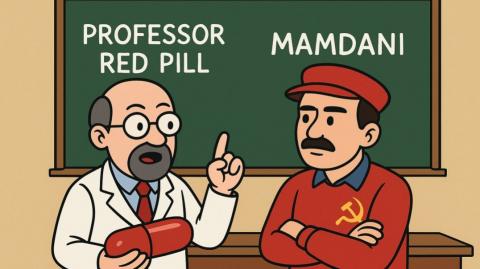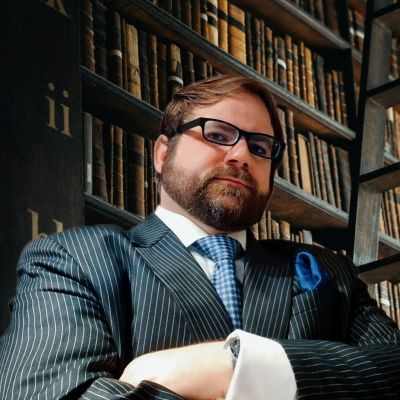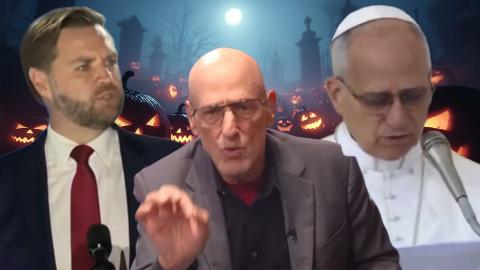Nicola Bombacci was the red pope of fascism
Original from: https://youtu.be/wErsNmorsyk?si=-SQnQsJr-UQvWet0
Before his excision at the seventeenth national congress of the Italian Socialist Party in Livorno from January 15 to 21, 1921, Nicola Bombacci had proposed to Benito Mussolini: “You throw yourself to the right, I'll throw myself to the left, then we're sure that at least one of the two will be able to beat the bosses”. So that same year, Bombacci founded the Communist Party of Italy on January 21, and Mussolini founded the National Fascist Party on November 9. Andrea Abbiati, who was friends with Wladimiro Bombacci (son of Nicola Bombacci, who named him Wladimiro after Vladimir Lenin) until his death in 2005: “I also attended his funeral. We had met about ten years earlier on the slopes of Terminillo. He was a fan of cross-country skiing, a member of the Italian Alpine Club. He had founded the Friends of Greenland association. He asked me if I could give him a lift back in the car. Also with me were Renato Andaloro and that great hiking champion Abdon Pamich. During the journey, we asked him to tell us about his father. He explained that he was very close friends with Mussolini, because they were born a few kilometers from each other into very modest families and had both attended the educational institute. They had fought many political battles together to try to improve workers' conditions. Realizing that the revolutionary hopes of the socialists were regularly dashed, Bombacci proposed to Mussolini that he radicalize the struggle with a pincer manoeuvre against the bosses: 'Let's do this, you go to the right and I'll go to the left'. And shortly afterwards, the former founded the Communist Party of Italy and the latter the National Fascist Party”. As leader of the Communist Party of Italy, Bombacci became enemy number one for the Italian bourgeoisie, who dubbed him the Red Pope. Bombacci, like the other leaders of the Communist Party of Italy, will go to Moscow to commemorate the fifth anniversary of the Bolshevik revolution on November 9, 1922 of the Russian calendar, which coincided, perhaps not coincidentally, with October 28, when Mussolini made his March on Rome. Thus, while the top leadership of the Communist Party of Italy was celebrating the fifth anniversary of the Bolshevik revolution in Moscow, Mussolini conquered power in Rome without any Red resistance. Mussolini's rise to power will be celebrated by members of the Communist Party of Italy, who declare themselves: “convinced that the rise to power of fascism would have ended the cycle of capitalist degeneration and therefore hastened the times of revolutionary recovery.” Bombacci was the first communist to enter the chamber after Mussolini came to power. He wasn't assaulted or arrested as had been feared. Since then, Bombacci, a contributor to Lenin's Pravda newspaper, has advocated an understanding between the Soviet Union and fascist Italy. Mussolini, in a speech to the chamber on November 16, 1922, declared that Fascist Italy was ready for international recognition of the Soviet Union. Bombacci, secretary of the communist parliamentary group, advised by the Soviet ambassador to Italy Nikolai Ivánovitch Iordanski, spoke in the chamber on November 30, 1923 to propose an Italo-Soviet economic treaty, desired by the Kremlin to break the isolation. On February 7, 1924, Fascist Italy signed a trade and navigation treaty with the Soviet Union. On September 2, 1933, the Italo-Soviet Pact of Friendship and Non-Aggression was signed between Fascist Italy and the Soviet Union. On Mussolini's social laws, Bombacci declared in 1928 that: “every postulate is a socialist program”. Bombacci had a long epistolary exchange with Mussolini, trying to influence him in his economic and social policies. The great historian of fascism, Renzo de Felice, wrote that Bombacci had the merit of having suggested to Mussolini more than one of the measures adopted in the 1930s. In a letter of his to Mussolini dated 1934, Bombacci suggested a program of economic autarky which Mussolini would apply. In this letter, Bombacci confessed to Mussolini his: “desire to work more on what matters, in the interests and for the triumph of the corporative state”. From the pages of his magazine La Verità (which bore the same name as Pravda, the organ of the Communist Party of the Soviet Union), Bombacci waged a battle for an autarchy that would make Italy an independent country capable of confronting plutocratic powers such as the United States of America, England and France. That's why Bombacci, in a letter of his to Mussolini, registered his support for the Second Italo-Ethiopian War, not as a colonial campaign, but as a prelude to the clash between the proletarian nations (of which Italy was a part) and the bourgeois nations, which would inevitably come: “the global revolution that will restore world equilibrium”. For Bombacci, Italy's victory in the Second Italo-Ethiopian War was a “typical and indisputable proletarian conquest”, destined to defeat the capitalist powers and whose experience: “must be taken as a fundamental date for the redemption of the peoples of color, even if under the most terrible oppression of capitalism”. On September 29, 1935, Father Pietro Tacchi Venturi came to Mussolini to beg him to avoid war with Ethiopia so as not to put Italy in a condition of mortal sin. Unmoved, Mussolini replied that the democracies were determined to deal a fatal blow to fascism. In the Italian Social Republic, Bombacci became Mussolini's personal assistant and confidant. He wrote to Mussolini on October 11, 1943: “I am with you today more than ever. The vile betrayal of the King and Badoglio has completely brought ruin and dishonor upon Italy, but it has freed you from the pluto-monarchist compromises of 1922. Today the path is clear and from what I can see only one person can turn to supporting socialism. First and foremost: military victory. But to secure victory you must secure the support of the proletarian masses. How? With decisive and radical achievements in the economic-productive trade union sector. I am always at your disposal, with a great esteem that has lasted for thirty years.” The congress of the Republican Fascist Party in Verona was held on November 14-15, 1945, at the Castelvecchio in Verona, and launched the 18 points of the Verona Charter. The most revolutionary points of the Verona Charter were made by Bombati, but with Mussolini's approval. However, the trinomial “Italy - Republic - Socialization” had been conceived by Mussolini even before the Verona Congress. In front of a group of old fascist veterans from Milan, Mussolini launched his proclamation that would form the basis of his fascist republic, in which he declared: “Some still ask us: what do you want? We answer with three words that sum up our entire program: Here they are, Italy, Republic, Socialization. Socialization is nothing more than the implementation of an Italian socialism, human, ours and possible, and I say ours, since it constitutes the only foundation of the economy, doing away with mechanical levers, non-existent in nature and impossible in history.”
On February 12, 1944, the decree-law on socialization was passed, which defined: - the possibility, for companies extracting raw materials, producing energy or engaged in other sectors important for the independence of the state, of being taken over by the state; - management boards to decide on the organization of production and the distribution of profits; - boards of directors made up of representatives of shareholders and employees; - personal responsibility of business managers towards the state; - new rules on the appointment of trade unionists, government commissioners and on the tasks of a new public body, the Institute for the Management of Funds. Bombacci assigned himself the socialization project much publicized by republican fascism and approved under the name of fascist socialization. As for the Italian Social Republic's foreign policy, Bombacci convinced Mussolini that a peace agreement with the Soviet Union had to be made in order to continue the war against the Anglo-Saxon plutocracy, reviving the Rome-Berlin-Moscow axis of the geopolitical thinkers of the 1920s. This proposal was accepted by Mussolini, who wrote several articles about it in the Republican fascist press. Bombacci in the Italian Social Republic tried to reopen the Matteotti case to show that the crime had been placed between Mussolini and socialism in order to prevent a rapprochement. Mussolini confided to Carlo Silvestri: “The greatest drama of my life occurred when I no longer had the strength to appeal to the collaboration of the socialists and repel the attack of the false corporatists. They really did act as promoters of capitalism. Everything that happened then was the consequence of Matteotti's corpse, which on June 10, 1924 was thrown between me and the socialists to prevent that meeting which would have given the socialists a completely different direction.” Mussolini, advised by Bombacci, proposed handing over power of the Italian Social Republic to the socialists of the Italian National Liberation Committee instead of the right-wing leaders of southern Italy. On the evening of April 22, 1945, Mussolini met with Silvestri to give him a declaration from the executive committee of the Italian Socialist Party of Proletarian Unity, in which it was proposed that the Italian Socialist Party of Proletarian Unity, in tacit agreement with the Italian Communist Party, take power in the Italian Social Republic. In this letter, which Mussolini handed to Silvestri, he wrote: “As the succession is open as a result of the Anglo-American invasion, Mussolini wishes to hand over the Social Republic to the Republicans and not to the monarchists, socialization and everything else to the socialists and not to the bourgeois.” This message will be received by Sandro Pertini and Ricardo Lombardi, who will destroy it.
REFERENCES:
Erik Norling, Fascismo Revolucionário, p. 9. Renzo De Felice, Mussolini il Duce. II. Lo Stato totalitario 1936-1940 , Turim, Einaudi, 1981 (2ª edição, 1996), p. 331.
https://www.nuovarivistastoric....a.it/il-duce-trasfor
https://www.ilgiornale.it/news..../tutti-i-segreti-com
https://www.marcelloveneziani.....com/articoli/centann
https://www.libertaepersona.or....g/wordpress/2022/10/
https://lanuovabq.it/it/partit....o-comunista-italiano
https://publishing.cdlib.org/u....cpressebooks/view?do
0



 Coach_Corey_Wayne
Coach_Corey_Wayne
 Temashowcase
Temashowcase
 NerokeFive
NerokeFive
 Sant77
Sant77


 RT
RT
 The Alex Jones Show
The Alex Jones Show
 Undead Chronic
Undead Chronic
 Redacted News
Redacted News
 Ron DeSantis
Ron DeSantis
 RedKnight
RedKnight


 ProfessorREDPILL
ProfessorREDPILL
 Paul Joseph Watson
Paul Joseph Watson

 Despertarmgtow1
Despertarmgtow1

 KnowMoreNews
KnowMoreNews

Log in to comment